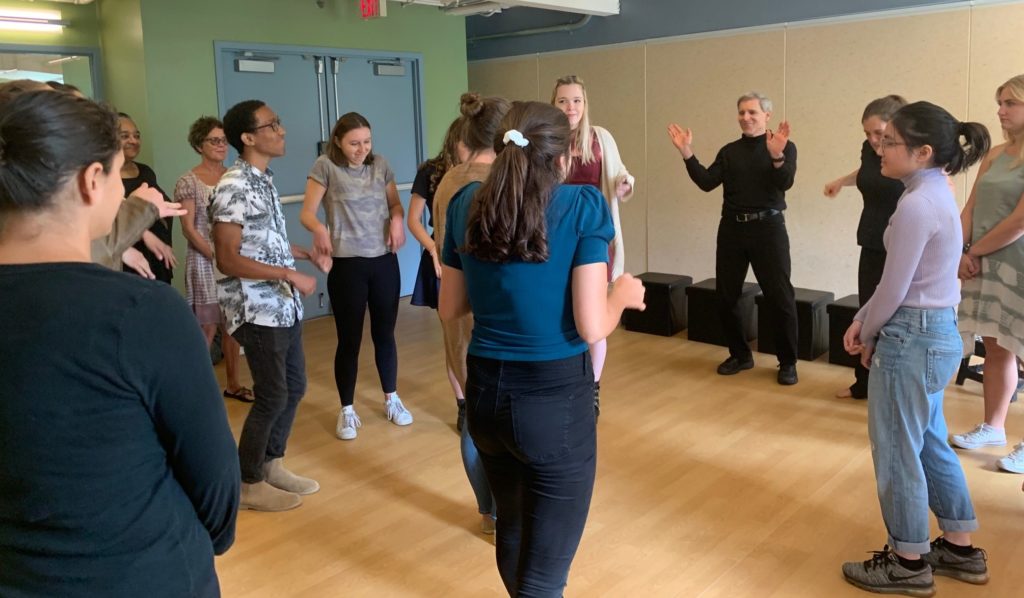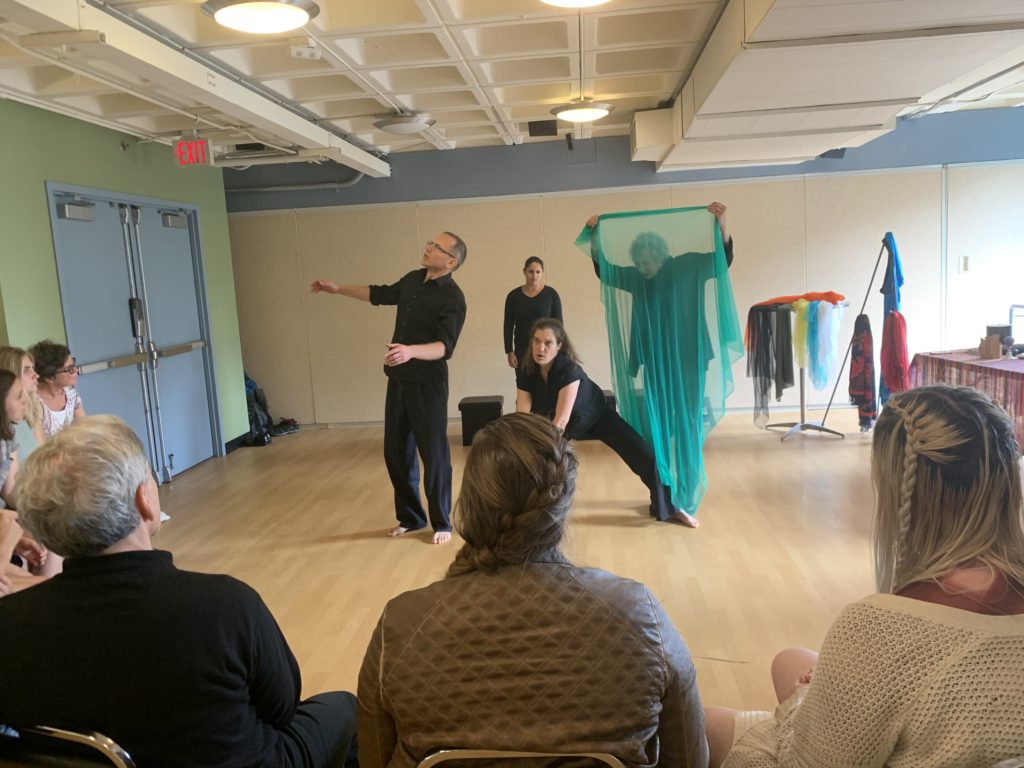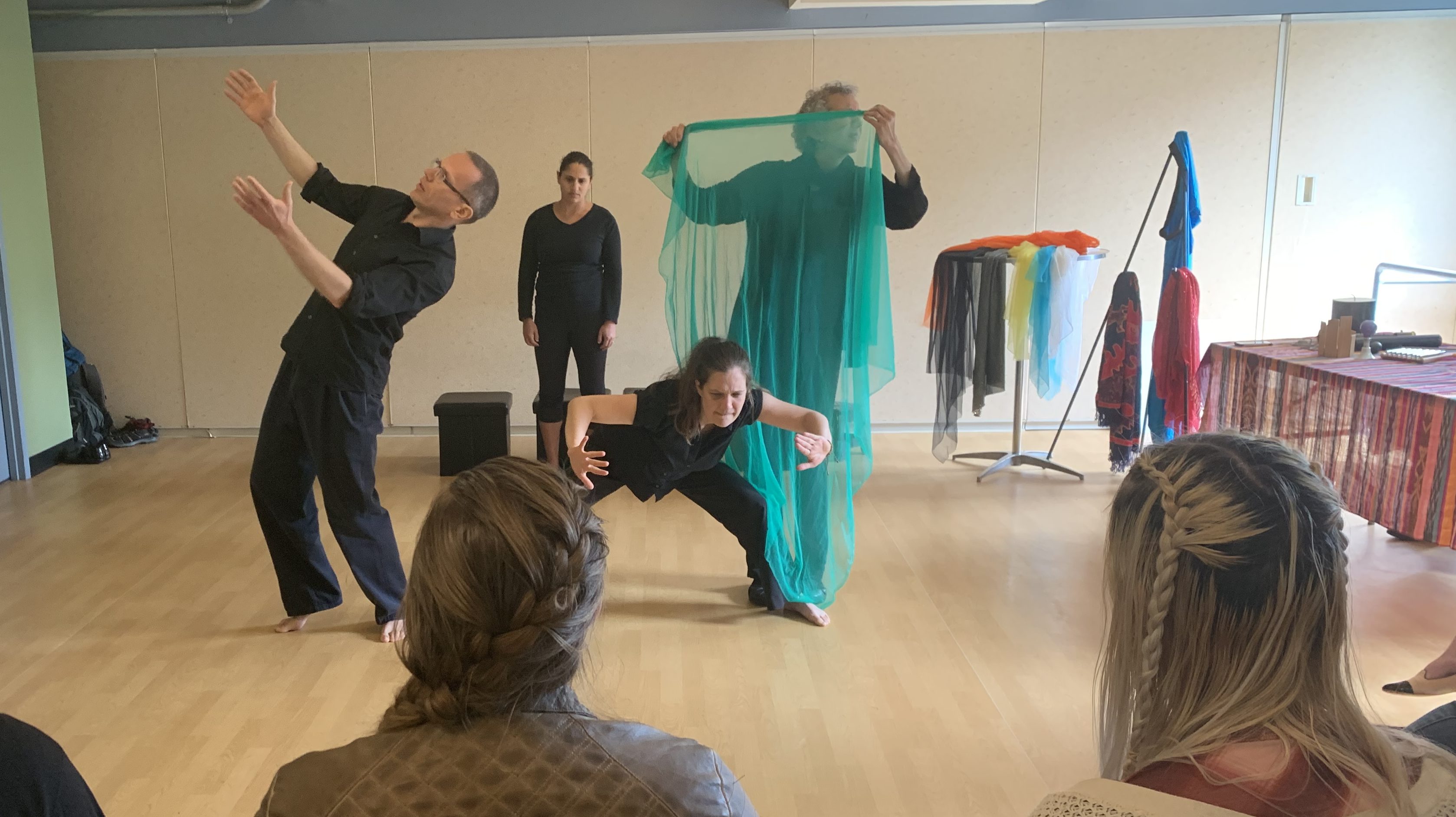Debrief and reflection are essential steps of the cooperative (co-op) education process for students in all programs across Northeastern University. This semester, a new College of Arts, Media and Design (CAMD) initiative seeks to enrich these post-co-op conversations and debrief experiences for its students within the Department of Theatre through playback theatre, a form of improvisational theatre that encourages audience members to tell stories and watch their experiences played back to them. Led by True Story Theater, the playback theatre session challenged students to recall and reflect on their co-op experience in a unique and engaging way. This group session and ongoing efforts to innovate the co-op reflection process is a collaboration between Kellianne Murphy, Senior Faculty Coordinator for Theatre and Global Co-op and Department of Theatre faculty members Dani Snyder-Young, Assistant Professor, and Antonio Ocampo-Guzman, Associate Professor and Interim Chair.
“The hope is that this will encourage students to start to tell their co-op stories and will ultimately lead to more honest, open, and meaningful reflections going forward,” explained Kellianne, CAMD Co-op. “It is a fun and interactive way to get students thinking about their co-op experiences and what they have learned, while also encouraging them to share their post co-op insights, challenges, discoveries, and triumphs with each other in a safe space.”
True Story Theater recently came on campus to lead a session for Theatre students who had been on co-op through the spring and summer. The cohort of students shared their experiences and worked through some of the highs and lows of their recent jobs. Now, they will go on to have their individual appointments with their co-op coordinators to review the various assignments and performance reviews. This more formal side of the co-op debrief process at Northeastern varies from program to program, but regardless of format, creating an environment that makes the students feel comfortable is key.

“Theatre students are energized by performance,” explained Kellianne. “Using performance and storytelling to kick off the co-op debrief is a great way to support our students’ reflection and make them feel comfortable and engaged.”
“This interactive approach to cooperative education reflection is very innovative,” added Professor Ocampo-Guzman. “It’s another layer of experiential education – using embodied reflection, as opposed to just written reflection. We continue to investigate the notion of Humanics by using theatre-based practice to elicit feedback about an educational experience.”

Moving forward, there may be the opportunity for other departments across Northeastern to embrace a more interactive co-op debrief process.
“We think that Department of Theatre students are the perfect group to pilot this approach with, but we are very interested in exploring how storytelling and performance could benefit students in other disciplines,” said Kellianne. “We know that reflection is valuable to all students, and we are interested in exploring the ways that this approach could benefit especially those students for whom written reflection is not as engaging or accessible. We are also interested in how group reflection can produce supportive and transformative community environments through reflection for under-represented students.”
Professor Snyder-Young first met True Story Theater at a playable theatre workshop she and fellow CAMD faculty member Celia Pearce were running. Professor Snyder-Young’s research explores the impact that theatre has on its audiences, and she frequently collaborates with community partners and artists to explore what they want to know about how audiences are receiving their work. Now, she has configured a study with True Story Theater that explores the transferability of a theatrical event to the real world, looking more closely at what these playback theatre events do to those who participate. This project continues Professor Snyder-Young’s research on creating social transformations through theatre.
This focus on social change is reflective of the Department of Theatre’s own emphasis on embracing theatre as a way to have a positive impact on the world, recently launching a minor in Theatre, Performance, and Social Change. This minor cultivates 21st century citizens who are passionate about engaging with cultural and social problems through theatre, and performance activities that encourage progressive social change. It further supports the notion at the heart of the Department that theatre is a living art that should seek to engage with our global society and the moment in which we live.


